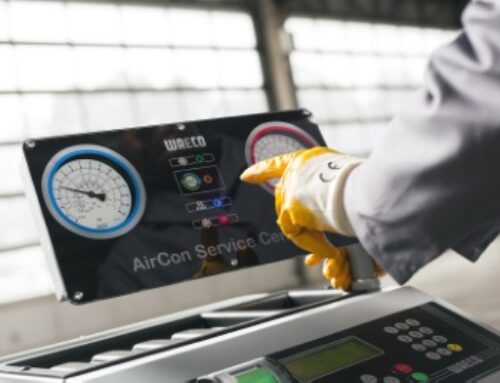TACL explores new ‘virtual reality’ of training
 Tachograph Analysis Consultants Ltd (TACL) has posed the question of whether remote training is likely to become ‘the new norm’, following the widespread shift from classroom-based training as a result of the coronavirus pandemic.
Tachograph Analysis Consultants Ltd (TACL) has posed the question of whether remote training is likely to become ‘the new norm’, following the widespread shift from classroom-based training as a result of the coronavirus pandemic.
“Recent times have witnessed changes that for consumers, business and industry may have taken months, even years, to achieve,” said TACL’s technical director, Dr Nigel Kirkwood (pictured, right).
“Many aspects of training in transport are compulsory and, once obtained, need to be renewed and refreshed on a periodic, though regular, basis.
“Given the literally overnight change preventing face-to-face training delivery, something needed to be done.”
Nigel praised regulators for moving quickly to assist the industry by extending deadlines on time-limited training, be that resulting from an undertaking as part of a public inquiry, recommended refresher training or legally required driver and manager training.
Later, face-to-face, classroom-based courses were allowed to be delivered remotely.
“Remote delivery of training is not without its critics,” he continued.
“Upholding quality, candidate involvement, interaction with the tutor and other course members, attendance verification etc, are some aspects cited as being potentially detrimental to the overall package of delivery…
“Traffic commissioners, to help ensure the continued high quality of training delivery, allayed often raised concerns by requiring that instructor and candidates were visible to each other at all times; that candidates had a device fitted with a camera and microphone; and that the course content was as close to classroom delivered content as possible.”
In addition, it was required that all candidates could be identified, and that instructor/candidate interaction could occur simultaneously with the display and discussion of course material. Attendees were actively engaged in the course by the inclusion of training assessment.
“Hybrid courses have quickly been developed,” added Nigel.
“These combine ‘remote’ capability with coursework submission before, during and after, the online participation to help ensure quality of delivery and retention and understanding of detail.”
He pointed out that, after time away from the workplace, good practice dictates that those returning have their knowledge refreshed.
“This is a rare opportunity to provide refresher training, and, for those unable to continue in their original roles, or where change is sought, retraining to provide that much-needed opportunity for change, diversification and upskilling,” he said.
“Whilst there have been many negatives recently, the substantial need for ‘return-to-work’ training is a real positive. Certainly the training providers can be applauded for their agility and drive to return to business (and training) as usual.”
 With the ever-increasing availability of fast connectivity, the technical difficulties and expense associated with the provision of remote training had largely disappeared, he said, with relevant vocabulary such as ‘Zoom’ and ‘Teams’, perhaps unknown to some a few short months ago, now everyday parlance.
With the ever-increasing availability of fast connectivity, the technical difficulties and expense associated with the provision of remote training had largely disappeared, he said, with relevant vocabulary such as ‘Zoom’ and ‘Teams’, perhaps unknown to some a few short months ago, now everyday parlance.
Nigel queried how much of the new thinking and ways of working that have been forced on the industry would remain and become the new norm, with the jury still out on the knowledge efficacy and quality provision of remote training – but with an increased appetite from employers and course candidates alike for reduced travel to dedicated training venues, and cost-effective training.
TACL is providing a range of remote learning and training courses for customers, supplemented and supported with handouts, short exercises and bullet-point crib sheets. Additionally, there are tailored remote support services.
Said Nigel: “We have been providing remote, tailored support services for many years. Recently they have come into sharp focus.
“Customers using these rely on our updates targeted to their specific needs. We do the legwork, so our customers do not have to.”











